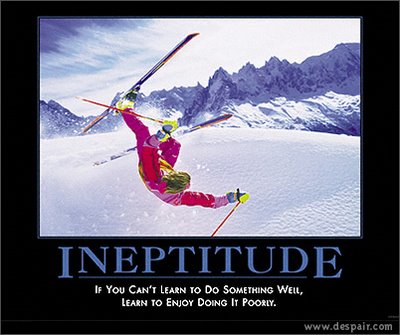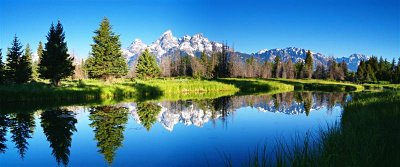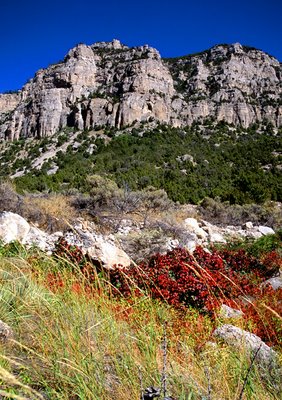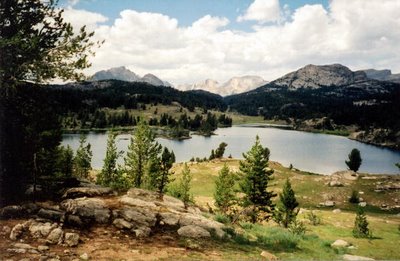"

The desire to take medicine is perhaps the greatest feature which distinguishes man from animals."
-- Sir William Osler
"I firmly believe that if the whole material medica could be sunk to the bottom of the sea, it would be all the better for mankind, and all the worse for the fishes."
-- Oliver Wendell Holmes
When I first encountered the above quotations by famous 19th century physicians, I appreciated their wry incrimination of the ineffectiveness of "modern" drugs (such as mercury and arsenic), but not for their applicability to today's pharmaceutically-saturated healthcare environment. Now, as my own medical practice and philosophy mature, I find myself increasingly referencing them as I build a healthy skepticism of the prevailing medical notion that a person needs drugs to become well.
I just returned from a medical conference in Keystone, Colorado, ostensibly an osteopathic conference, but functionally a mainstream medical seminar for busy primary care providers. There were a variety of lectures on diabetes, hypertension, cholesterol, kidney disease, osteoporosis, hormone replacement, etc.-- a potporruri of the most commonly treated chronic diseases in a general practice setting. The review was beneficial, but as the lectures progressed, an all-too-common theme emerged: the only thing that can cure illness in your patients is _________. (Fill in the blank with any of the latest and greatest drugs, most of which were being aggressively marketed by all manner of slick pharmaceutical reps loitering just beyond the room divider.)
For instance, a respected nephrologist (kidney doctor) gave an excellent review of the diagnosis and treatment of chronic kidney disease, but by the end of the lecture, I counted five--five!--drugs that absolutely all patients with Stage 1 kidney disease must be on to prevent progression towards more severe disease. The thing is, most patients at this mild stage have no symptoms; it's typically diagnosed incidentally or caught with routine screening tests. Can you imagine a otherwise healthy patient walking into a routine check-up, feeling just peachy keen, and walking out with a handful of five prescriptions, with the total monthly cost being upwards of $200? It's a totally ridiculous thought, and yet it was what this intelligent doctor was advocating to a roomful of earnest and gullible physicians. In her evidence-based paradigm, the most proven intervention to slow the progression of disease was to throw a fistful of foreign, man-made chemicals into the ailing human organism.
I believe this inclination towards pharmaceutical intervention stems from a modern faith in the supremacy of human scientific endeavor over nature. And who can discredit the enormity of human industrial achievement? We invented cars, rocketships, computers, iPods . . . not to mention surgery, antibiotics, vaccinations and the hundred other proven medical advancements that have enhanced and prolonged human life.

But the human body is divinely different than any human-created machine; it can heal itself--diagnose, repair, restore, regenerate, and all without needing any conscious command or program from its user. It happens spontaneously. Why? Because that is how God--or for the less devout, mother nature--designed us.
Generally speaking, the human body has a healing system that, when nurtured, can overcome disease on its own without the aid of external forces. Dr. Andrew Weil makes an irrefutable, evidence-based case for this natural healing paradigm in his eloquent and easily understood book, Spontaneously Healing. A Harvard-trained M.D., he powerfully challenges the pharmaceutical-based medical culture that our Western healthcare system endorses. It should be required reading for all physicians. As it is, I stumbled across it accidentally after already completing my formal training. But its crystal-clear precepts speak more profoundly to me than anything else I digested and regurgitated in my medical education.
Dr. Weil suggests that a physician's most powerful tool in promoting health and healing is not through external intervention, but rather through accessing and activating the human body's intrinsic healing system. This activation can occur through many forms: modern drugs, osteopathic manipulation, transcendental meditation, acupuncture, herbal supplements. The common thread is not the mode of intervention, but rather the internal, spontaneous healing that the intervention activates.
The unfortunate subtext of modern medical care--that science knows better than mother nature, that unnaturally engineered chemicals are necessary for proper functioning of the human body--transmits directly to patients' expectations, perpetually reinforcing itself through most patient-physician interactions. People are accustomed to paying lots of money for expert advice from a well-trained physician, whom they implicitly trust to guide them towards a quick fix. When the doctor hands them a brand new, cutting edge drug sample, they think they've received the ultimate in modern medicine. "Take these," the doctor recommends, "every day for the rest of your life, and you will be well." The patient is impressed, the doctor has the satisfaction of providing an expert service, and everyone is satisfied. And thus the cycle perpetuates.
But there are problems: that fancy medicine will cost big bucks once the samples are gone, siphoning finite health care dollars that could have otherwise been spent on preventive or emergency care; it will have known toxic side effects on the patient's resilient but delicate physiology; it will have potentially lethal interactions with other medications that patient is concurrently ingesting; and it will further reinforce to the patient's mind the necessity of external drug therapy.
Because the doctor will spend precious time explaining the indications, administration, and side effects of the medicine, he/she will not spend adequate time on the most important medical advice the patient needs to hear: lose fifty pounds, exercise frequently, consume more fruits and vegetables, watch less television, eat less salt and trans fats, and meditate daily. These natural, risk-free, non-pharmaceutical interventions, if emphasized and followed, will cure the patient's diabetes, hypertension, high cholesterol, arthritis, obesity, depression, and kidney disease at a stunningly higher rate than any other combination of drugs, all at a minimal cost.
Why don't physicians devote more time to advocating these natural lifestyle remedies? The reasons are legion: lopsided medical education, academic disdain for natural therapies, financial and social pressures from the pharmaceutical industry, an over-reliance on technology, time constraints (much faster to write a prescription), a false belief in better compliance with drugs than lifestyle interventions (if counseled properly with good follow-up, patients will implement lifestyle interventions at a high rate), medical-legal and quality control measures that evaluate physician performance on easily quantifiable parameters such as prescriptions written versus more nebulous measures such as lifestyle counseling, and on and on. Embarrassingly, I'm as guilty as the next doctor in reaching for the prescription pad all too soon; I suffer equally from all of the above mentioned blockades that are endemic to the system in which I practice. And fairly, I believe that many of these medications are beneficial and safe. But I also believe that, in most cases, they should not be the primary intervention. They should be a last resort, pulled out only when natural remedies are clearly failing.
I may eventually launch a crusade against the whole system; you may see me one day leading protestor chants from the sidewalk of a major drug company, dressed in a symbolic skeleton costume while brandishing a large pill bottle that reads "Danger: Poison." But for now I just want to provide quality health care (as opposed to medical care) for my patients, who come to me with great needs and great trust. My practice has already changed; I now make an increased effort to emphasize to my patients the natural lifestyle interventions that will allow their own healing systems to function optimally and restore them to health. For the most part, I've found that my patients react very favorably to these ideas--they've just never heard a doctor profess them before.
I have had one passive act of defiance, however: I didn't visit a single one of those parasitic drug reps at the conference. You can go pawn your cheap desk clock to some other gullible doctor who's willing to sell his soul to Merck and Co. But not me, sucker. I've got better things to do, like go activate somebody's intrinsic healing system through my positive karma and mystic energy fields.
Or cranial technique. Or placebo. Or whatever it takes. Because the cure doesn't come from the intervention.
It comes from within.
To be continued . . .
 The desire to take medicine is perhaps the greatest feature which distinguishes man from animals."
The desire to take medicine is perhaps the greatest feature which distinguishes man from animals." But the human body is divinely different than any human-created machine; it can heal itself--diagnose, repair, restore, regenerate, and all without needing any conscious command or program from its user. It happens spontaneously. Why? Because that is how God--or for the less devout, mother nature--designed us.
But the human body is divinely different than any human-created machine; it can heal itself--diagnose, repair, restore, regenerate, and all without needing any conscious command or program from its user. It happens spontaneously. Why? Because that is how God--or for the less devout, mother nature--designed us. 

















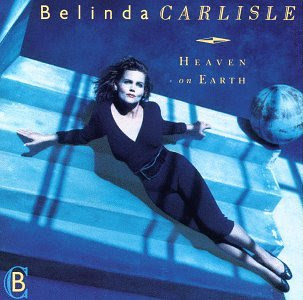
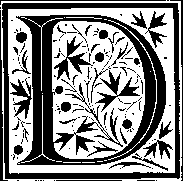

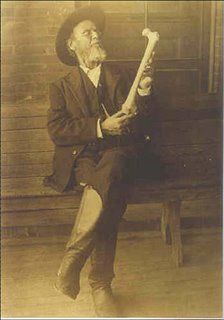
 The blaze of autumn leaves. Crisp, frosty mornings. The scent of apple cider on the stove. And football, baby. Football.
The blaze of autumn leaves. Crisp, frosty mornings. The scent of apple cider on the stove. And football, baby. Football.

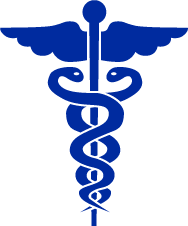

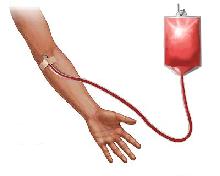
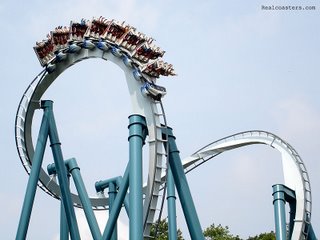
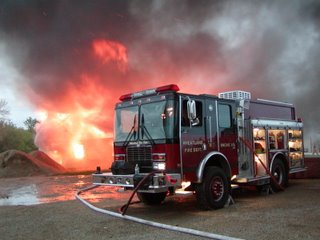

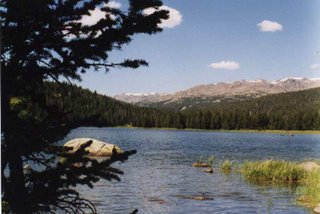


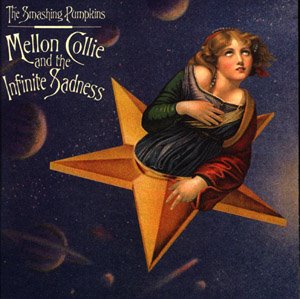 Tonight was not at all melancholic. On the contrary, after a difficult day at work, Elizabeth and the kids threw a great 32nd birthday party for me. We played games, opened gifts, wrestled, danced, laughed, and then had my perennial "Funfetti" cake: multi-colored cake, white icing, and Cookies & Cream. Mmmm . . . delicious.
Tonight was not at all melancholic. On the contrary, after a difficult day at work, Elizabeth and the kids threw a great 32nd birthday party for me. We played games, opened gifts, wrestled, danced, laughed, and then had my perennial "Funfetti" cake: multi-colored cake, white icing, and Cookies & Cream. Mmmm . . . delicious. 
